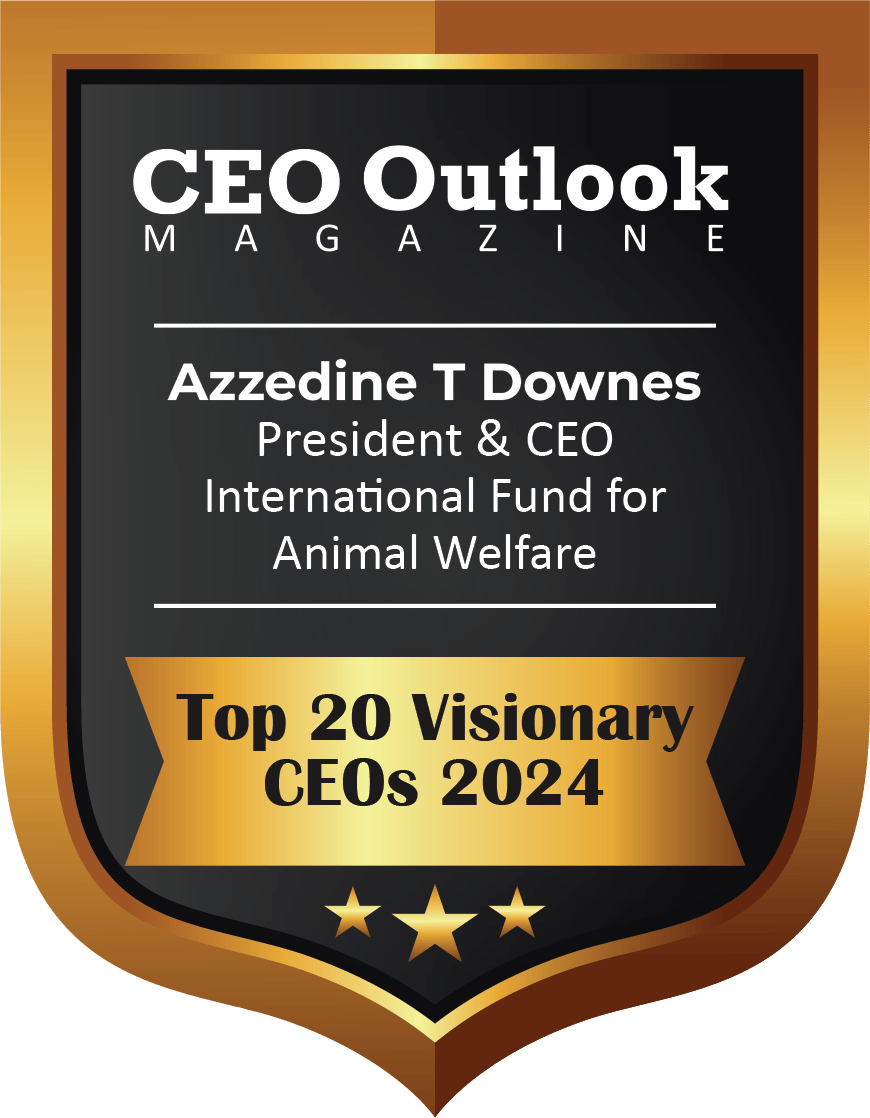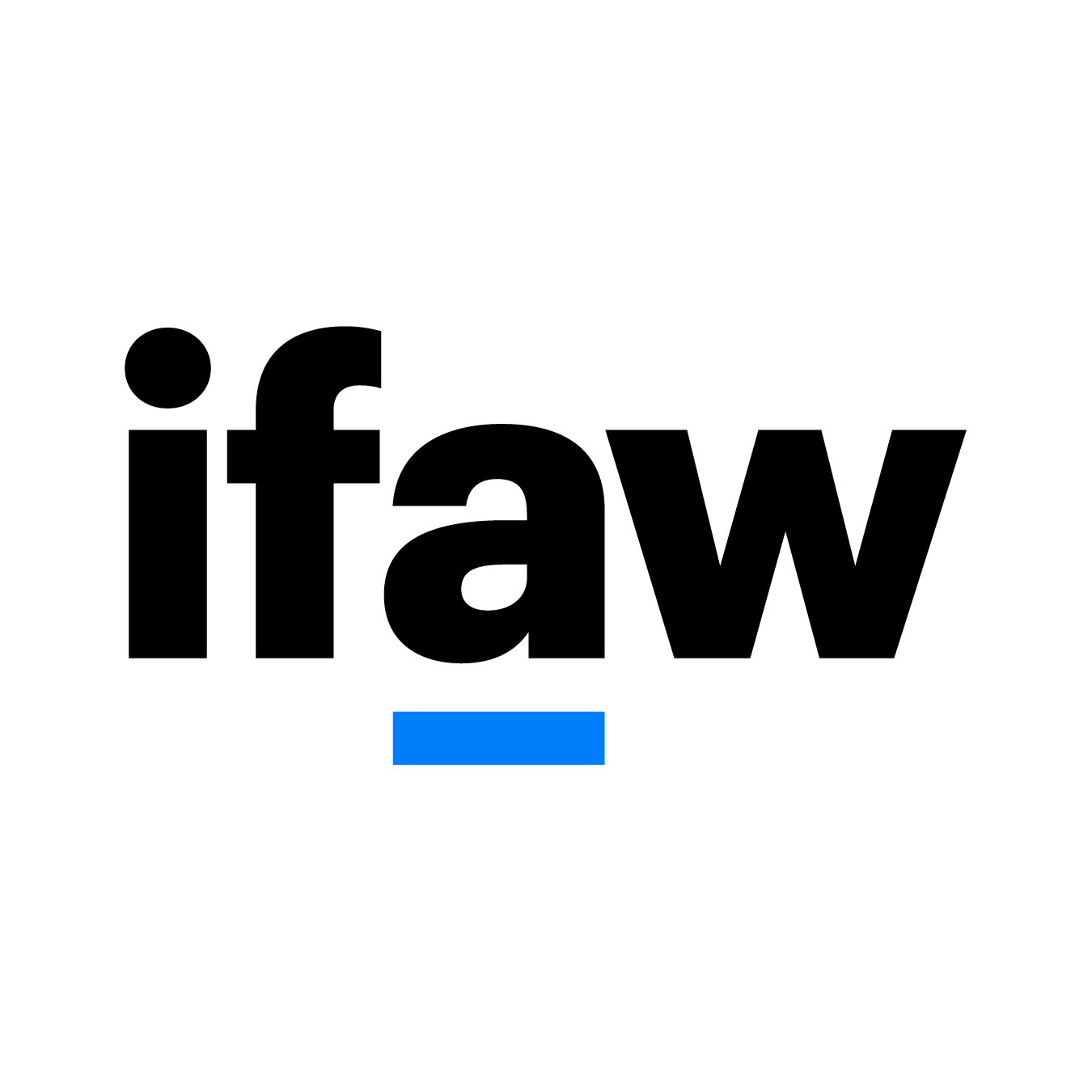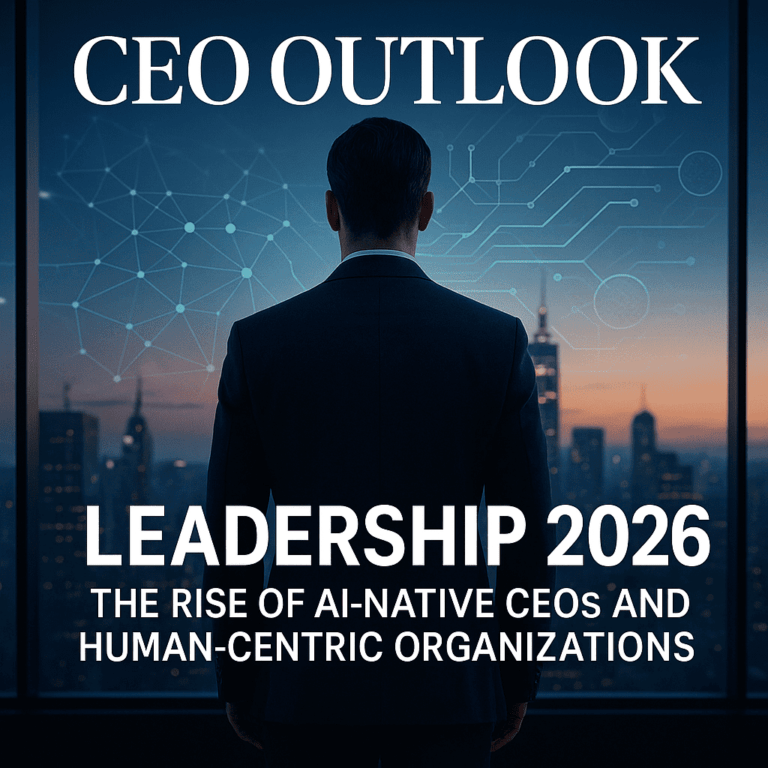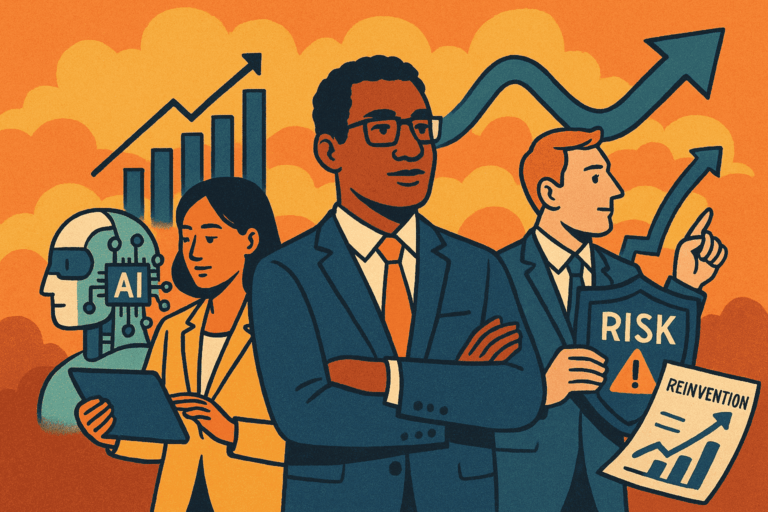Azzedine T Downes | President & CEO | International Fund for Animal Welfare
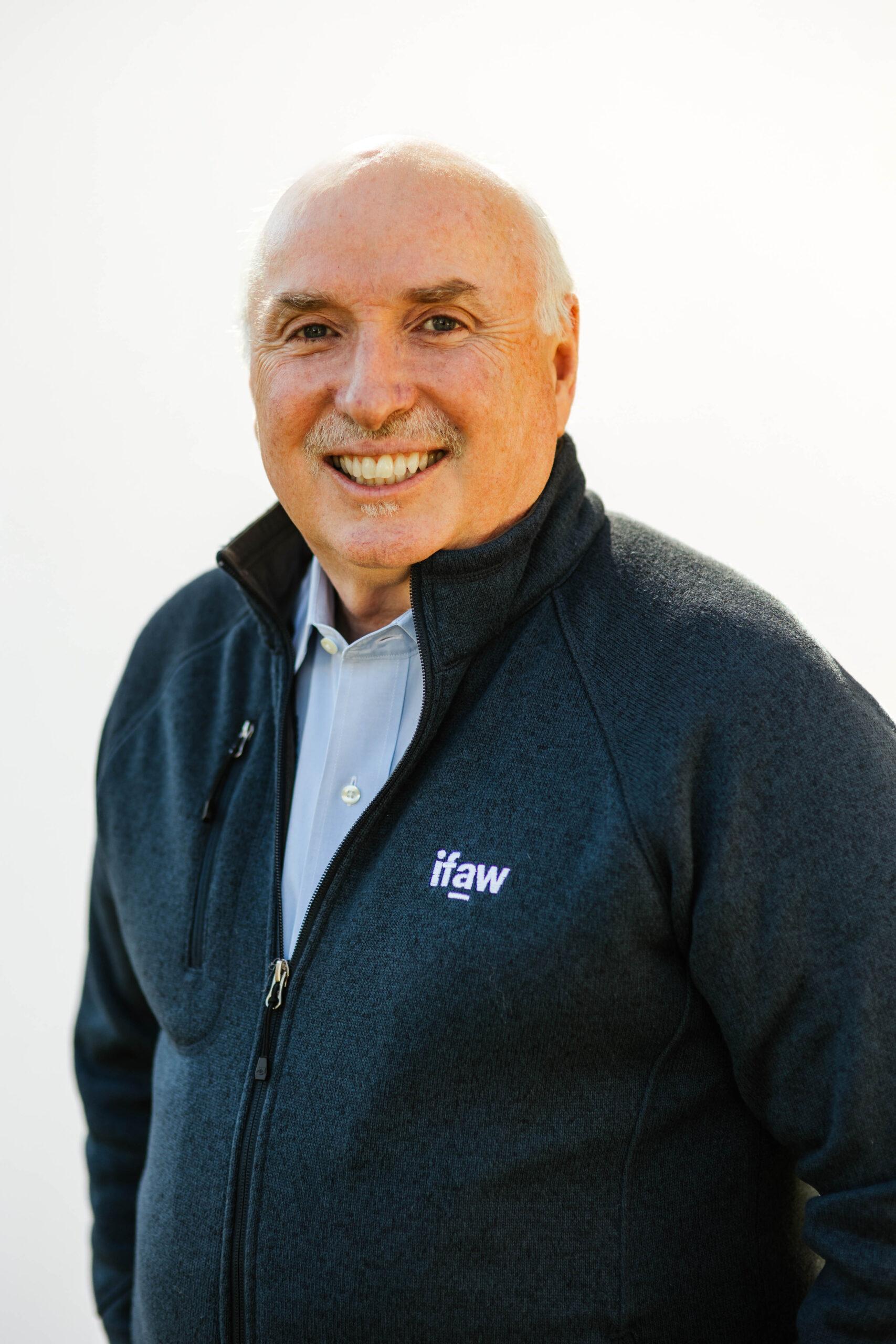
Azzedine T Downes
President & CEO
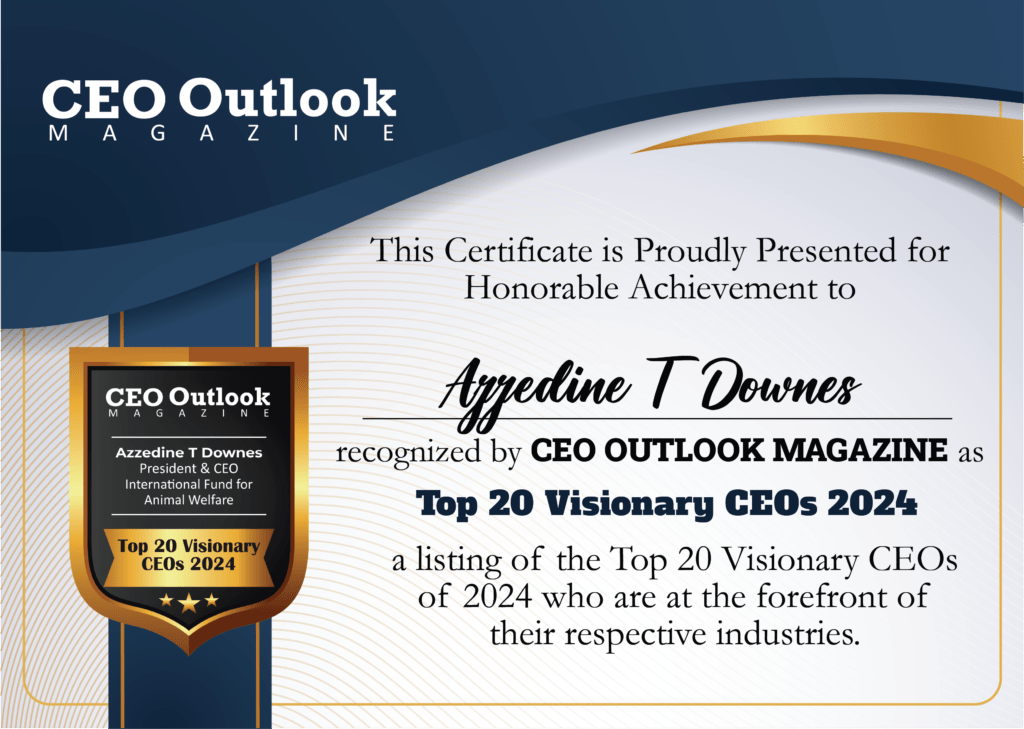
" Ours is a shared planet, and thus, we remain singularly focused on helping both animals and people thrive together in the place we call home. Our work transcends borders, from the most remote local community to the broadest global stage. This is not just a statement of scope but an observation of the power of ordinary people to make a difference wherever they live. "
One Man’s Vision Forges a New Conservation Future
The willingness to embrace the unknown and trust in taking the road less traveled has been one defining characteristic in the life and career of Azzedine Downes. An American Muslim with Irish roots, Downes has always had a natural talent for navigating diverse cultures and making unexpected connections. As a young adult, Azzedine embarked on a globally nomadic lifestyle, traversing Morocco, Eastern Europe, Northwest Africa, and Israel. These journeys, brilliantly depicted in his memoir The Couscous Chronicles, taught him how to adapt and relate to people from all walks of life.
Throughout his impressive career, Downes has served as Peace Corps Regional Director Eurasia and the Middle East, Peace Core Chief of Operations, and Chief of Party for USAID in Jerusalem and Morocco. Today, Azzedine Downes continues to break boundaries and create real-world solutions as President and CEO of the International Fund for Animal Welfare (IFAW), an organization reshaping global conservation to help people and animals thrive together. He is often touted as the founder of the ‘new IFAW’, but rather than breaking from the past, Downes has embraced its lessons and learnings, adapting it to the realities of the day and placing it in a position most adept to embrace a hopeful future.
Over the last 25+ years, Downes has led IFAW through a groundbreaking period of geographic expansion and strategic consolidation years—many describe it as the ‘new IFAW’. In his first year as President, IFAW signed a historic lease agreement with a Maasai community near Amboseli National Park in Kenya, securing 16,000 acres of precious habitat for elephants. Months later, Downes helped establish a first-of-its-kind cooperative framework between IFAW and INTERPOL’s Environmental Crime Program. He’s helped open offices on four continents, including IFAW’s first office in the Middle East. In 2018, Downes directed IFAW’s successful campaign for membership to the International Union for Conservation of Nature (IUCN). Moreover, in 2023, Downes was named to the prestigious Council for Hope of the Jane Goodall Legacy Foundation, joining a group of prominent global thought and business leaders committed to using their influence to improve the world around us.
The CEO mindset to fostering trust
It takes great courage to acknowledge the challenges ahead and embark confidently on new horizons. With Downes at the forefront, IFAW has gained a reputation for meeting complex issues with expertise and bold action.
Whether rescuing stranded whales on Cape Cod or patrolling national parks in Kenya, IFAW’s teams are out on the frontlines creating better outcomes for animals, people, and the places we call home. Downes upholds IFAW’s cornerstone belief that every individual animal matters. While other organizations focus solely on species conservation, IFAW stands apart with its ability to rescue, rehabilitate, and release individual animals — one by one — to support populations, ecosystems, and our planet’s health.
Through meaningful dialogue and community engagement, Downes helps global audiences recognize animal welfare as a real science and a tangible concern in conservation.”Talking to people who already agree with us just isn’t enough to get real results,” says Downes. A key part of his programmatic strategy involves meeting with those he calls “unusual suspects” — people like military intelligence officers in the U.S., reformed poachers in Malawi, and auction houses in China.
Downes’ ability to engage at all levels of an issue and cultivate authentic relationships is fundamental to IFAW’s people-driven approach and credibility. Through this trust, IFAW co-creates solutions with local communities and supports individuals in exercising their rights to amplify their voices in local, regional, and global decision-making to benefit people and animals.
Viewing wildlife as part of the solution
Downes emphasizes that protecting biodiversity is truly about protecting the health of the planet — which ultimately ensures our own health as well. The interconnectedness is undeniable. He points out how all people are part of the ecosystem, part of an intricate tapestry of biodiversity, where each element plays a role. Downes urges us not to view wildlife as just a victim of climate change. Instead, we must reframe our thinking to view wildlife as part of the solution, sharing the powerful message that wildlife can save us. “It’s not just a tagline,” he explains. “It’s the scientific truth. We need to recognize the intrinsic value of wildlife for the future of our shared planet.”
But rescuing and protecting wildlife is not enough. Downes urges that we must secure those landscapes as well. Wild animals need safe spaces to move across borders, access food, and live freely at a distance from humans — otherwise, releasing them back into the wild is a futile effort. It is this part of the conservation puzzle which is far too often overlooked.
Downes acknowledges that all too often, the need to dominate nature driven by profit or competition for space and resources is at the core of humanity’s behavior. He instead poses a simple question for reflection: “Are we willing to share the planet?”
To illustrate this point, Downes refers to an initiative led by IFAW called “Room to Roam,” a transnational corridor initiative that connects twelve critical landscapes across Africa for elephants and other wildlife. It is arguably one of the largest conservation initiatives ever undertaken. Backed by 20 years of science and engagement with local communities, Room to Roam creates safe passages for wildlife to travel freely through their home ranges while simultaneously allowing for the presence and co-habitation of humanity in those shared spaces. Downes notes that there is no “us or them” option here.
“It is a shared planet where we are fundamentally intertwined. It is not a question of saving one over the other,” explains Downes. “The focus must be on keeping people safe while also keeping wildlife safe.”
Room to Roam is much more than just a project to save elephants. It’s a visionary approach tobuild climate-resilient landscapes where local communities and wildlife thrive. Through wide-ranging initiatives like climate-smart agriculture and vocational training programs, Roomto Roam also enhances food security and economic livelihood for local communities most impacted by climate change. The initiative sets a new precedent for the future. Only by working alongside nature, with wildlife as our allies, can we forge a future of resilience and coexistence. This is not only the philosophy of the initiative itself but a deep reflection of Downes’ philosophy as well.
Leading with optimism and determination
Downes instills in his organization that nature and animals are exceptionally resilient. Nature will bounce back — if we allow it to. He refuses to accept that we are mere witnesses to the planet’s demise, that the pendulum has swung so far past the tipping point that we cannot correct the course.
Downes points out the critical importance of hope, a personal philosophy he shares as part of a deep friendship with renowned conservationist and mentor Jane Goodall. When the Black Summer bushfires ravaged Queensland and New South Wales in 2019-2020, IFAW’s disaster response team rescued koalas, wallabies, flying foxes, birds, and kangaroos. When the Ukraine crisis erupted, IFAW welcomed thousands of refugees daily with pet food, carriers, and emergency veterinary care at the border crossing in Medyka, Poland. And when orphaned elephant calf ‘Jack’ lost his herd, IFAW-ZEN rehabilitated and released him back into the wild, where he now single-handedly helps protect his species through satellite tracking data. During times when disaster, war, and conflict seem inescapable, communities and animals around the world find hope and stability in IFAW, a port of safety in the storm that envelops humanity, especially today.
Downes acknowledges that each generation has its own burdens to bear from its predecessors, and a feeling of doom particularly impacts today’s young adults. Climate anxiety is at an all-time high, washing over many with fear of the inability to make a difference.He and his teams at IFAW are determined to include young people at the forefront of wildlife conservation efforts. From Zimbabwe to Kenya, programs like the Environmental Stewards Programme nurture a new generation of conservation leaders armed with knowledge and a supportive community of like-minded individuals. Downes believes conservation isn’t limited to the sciences, as music and art play a significant role in fostering community and inspiring action. Under his influence, IFAW explores new creative avenues to engage youth and offer outlets for expression.
For six years and counting, the organization has hosted the annual World Wildlife Day international youth art contest in collaboration with the Secretariat of the Convention on International Trade in Endangered Species of Wild Fauna and Flora (CITES) and the United Nations Development Programme (UNDP). 2024 was a record-breaking year for global submissions, with youth from 141 countries submitting extraordinary expressions of art under the theme “Connecting People and Planet: Exploring Digital Innovation in Wildlife Conservation.” He maintains that regardless of one’s background, wildlife does indeed unite us all—some experience its presence more visibly day to day, while others may seem only to experience it when making the opportunity to do so. Nevertheless, it is integral component of all of human society.
Downes believes that solutions, much like hope, surround us if we are willing to embrace them.
“Stay right in the moment,” offers Downes. “Don’t look too far into the past or the future. Stay right where you are and trade your anxiety for hope — replace inaction with relentlessness. Only when you abandon hope will you reach the point of no return. And that is a point I have no intention of ever reaching.”


















































